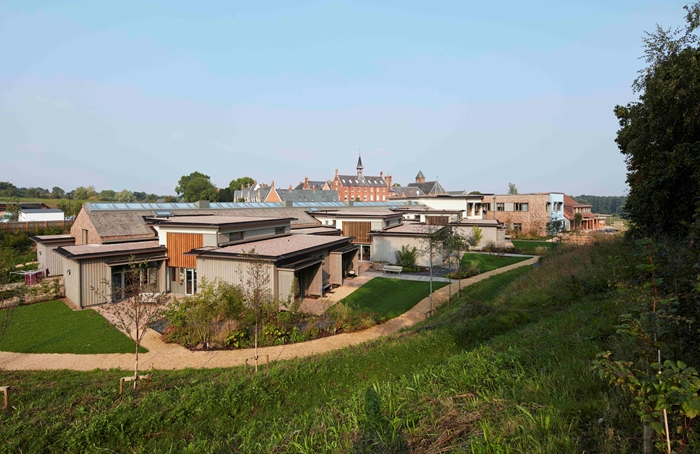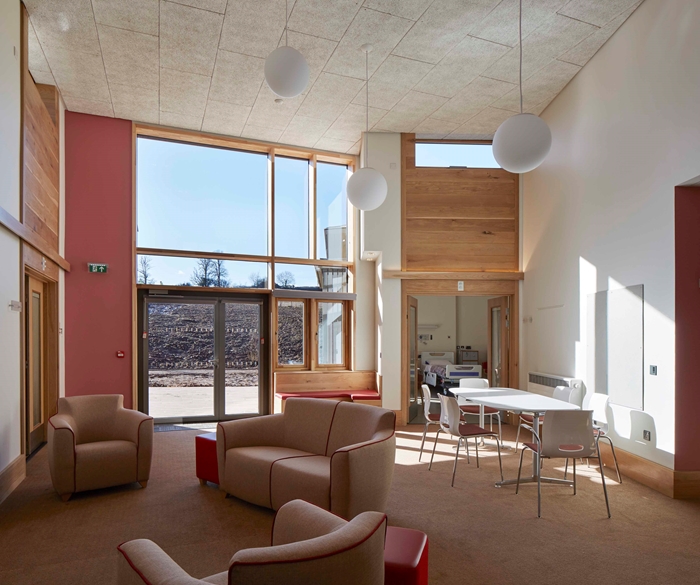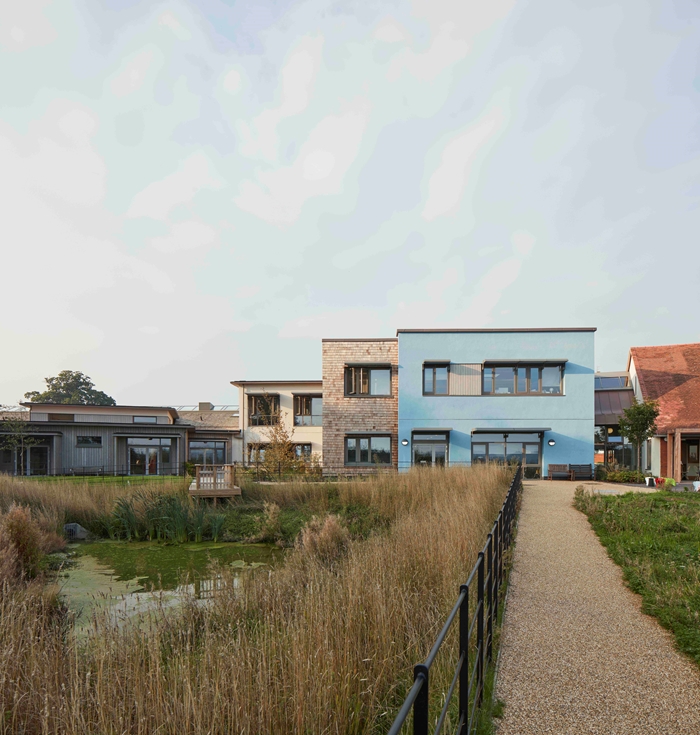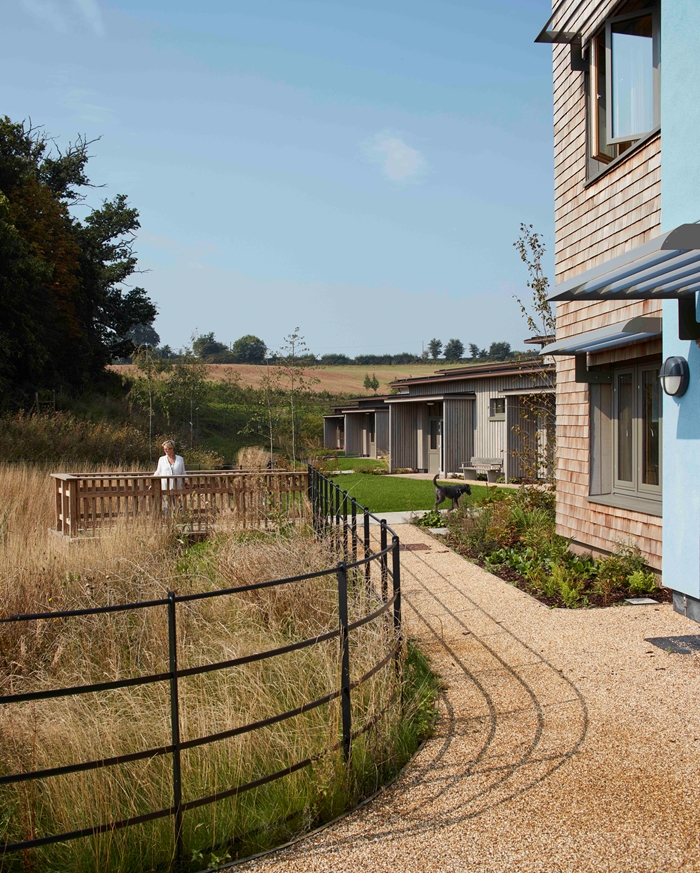St. Michael's Hospice
by Architype
Client St. Michael's Hospice
Awards RIBA West Midlands Regional Award 2017 and RIBA West Midlands Project Architect of the Year Award 2017 - sponsored by Taylor Maxwell - to Paul Neep
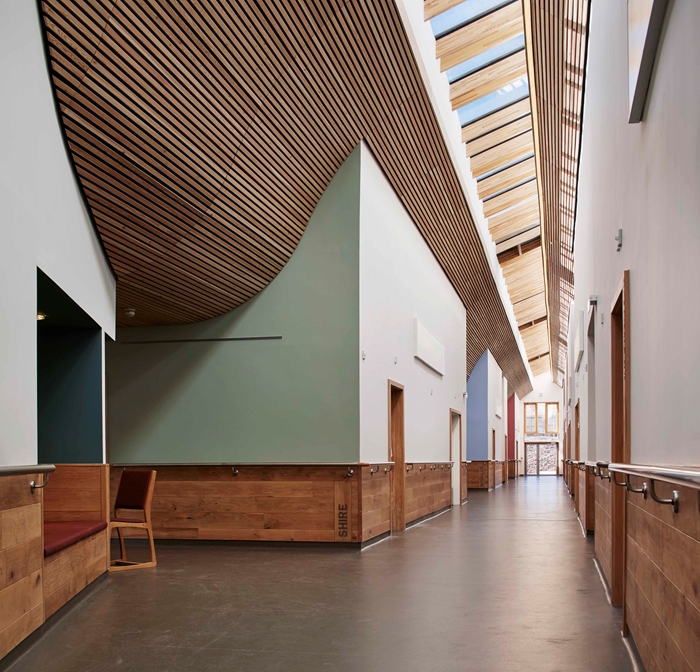
If Architecture is to celebrate human achievements and is here to last, what should the architecture for a hospice celebrate? How should it address its users, where 'end-user' takes a very different meaning? What should it offer beyond its fit for medical purpose environment? The St Michael's Hospice project gives comprehensive and convincing answers to all of these.
Stunning views out into the landscape and plenty of daylight work together to lift any pervading feeling of hesitation and discomfort, which disappears very quickly once inside. There is a busy and relaxed reception area with a small shop. Visitor’s café benefits from beautiful distant views, as do the physiotherapy rooms. The layout conveys a message of openness and a shared experience. The client's vision was to provide not just a hospice but a community and training centre. The building certainly delivers this vision. Since its opening, the hospice has indeed become a hub for the local community and is used daily for seminars and external courses.
The spaces become more tranquil as one progresses through the building. The softness of daylight is enhanced by the curved timber cladding in a double-height central spine. There is no 'end' to the spine but a fully glazed view into the gardens. Feeding off the central space are clusters of individual rooms with common areas, which are also open to the outside and filled with daylight, warm colours and - children's toys!
All patients’ rooms are open into the gardens with individual decks. ‘Everyday’ details take on a new importance. Hiding hoist tracks is a solution for a less clinical look and ‘at home’ feel to the rooms. The close-up views onto the gardens are very important for patients with affected sight. Every element, be it untreated timber solar shading or a rainwater stream falling into a large garden bowl outside a window, offers an intimate appreciation of the beauty of nature and the changing weather.
The refurbished part of the project is a real success. The opening up of the ground floor makes the very best of the panoramic views across the nearby orchard. The upper floors are remodelled to allow daylight into deeper parts of the ground floor. These touches are particularly effective in bringing light and serenity into the interior. The addition of the lower ground cleverly utilises the site topography without altering the overall massing and its roof provides a generous outdoor terrace from which to further enjoy the panoramic views. External level changes are so well integrated they become almost unnoticeable which is particularly important for the wheelchair users.
Overall it must be those beautifully lit and airy spaces inside the hospice and the views of the landscape that have a quite power to make one feel at ease with the world and the ultimate end. It is not an acceptance, nor it is a hope or a reflection but a comfort of calmness and peace, for now and beyond.
The architects and the client have become one team sharing their passion and care for the project. The judges were particularly impressed by the project architect Paul Neep and his detail understanding of patients' conditions and feelings. Paul has been instrumental in delivering a high quality design within a humble budget. We therefore believe that the RIBA Project Architect of the Year Award should go to Paul Neep.
Contractor Speller Metcalfe
Structural Engineer Integral Engineering Design
Quantity Surveyor/Cost Consultant Osbourne
Environmental/M&E Engineer Couch Perry Wilkes
Landscape Architects Churchman Landscape Architects
Internal area 5,184.00 m²
